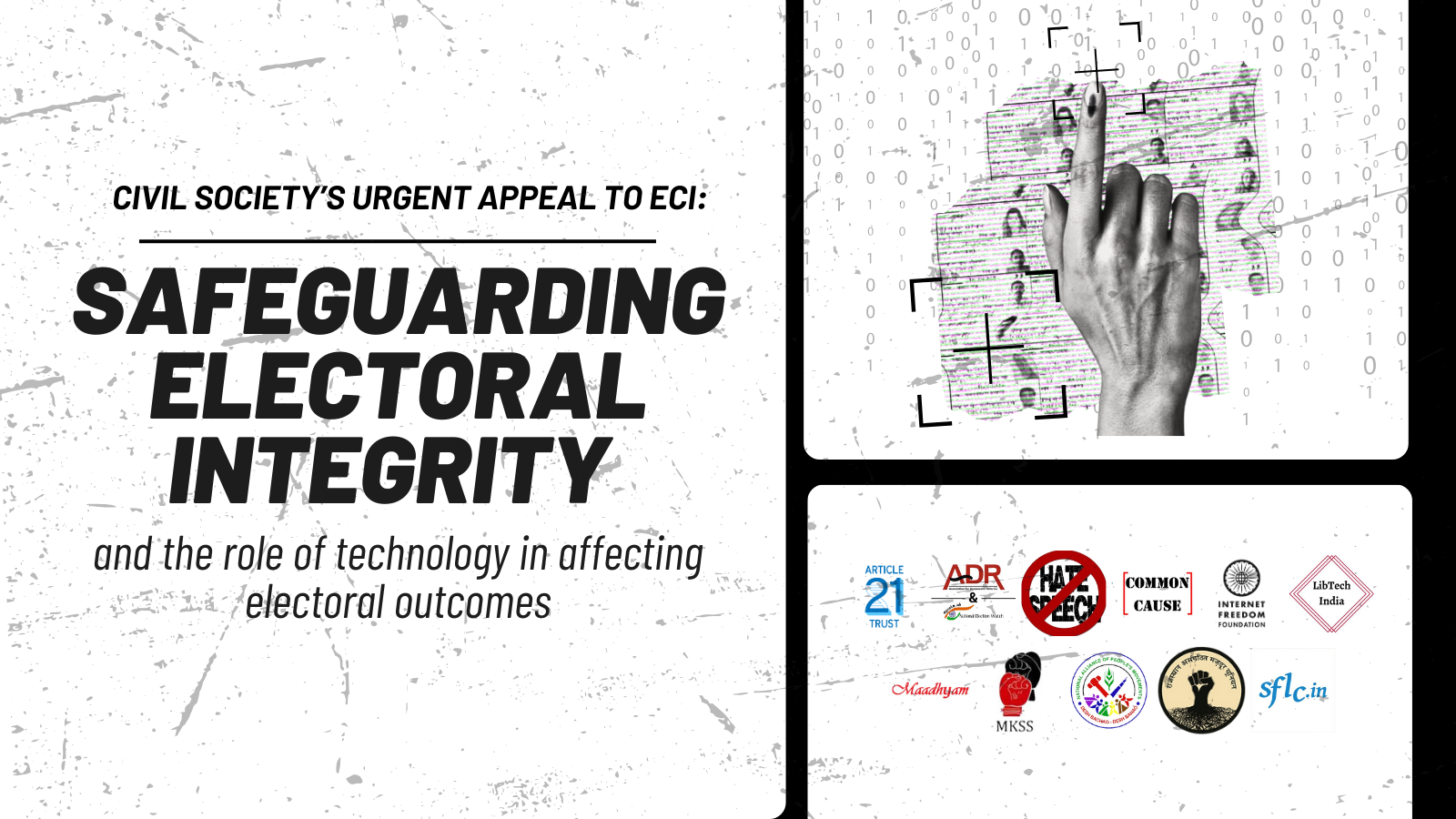
New Delhi, April 08, 2024: Earlier today, 11 civil society organisations wrote to the Election Commission of India (“ECI”) in a collaborative effort, highlighting the role of technology in affecting electoral processes and outcomes. The letter includes an urgent appeal to the ECI to uphold the integrity of the upcoming elections and hold political parties, candidates, and digital platforms accountable to the voters.
The signatories to the letter are Article 21 Trust, Association for Democratic Reforms, Campaign Against Hate Speech, Common Cause, Internet Freedom Foundation, LibTech India, Maadhyam, Mazdoor Kisan Shakti Sangathan, National Alliance of People's Movements, Rajasthan Asangathit Mazdoor Union, and Software Freedom Law Center, India.
Following are the concerns and appeals outlined in the joint letter:
- Online campaigning and surrogate advertisements: Expenditure on surrogate advertising and targeted online campaigns by political actors to influence voter perception and beliefs are not under adequate scrutiny. The ECI must increase the accountability of political parties and digital platforms by adopting internationally acceptable, rights-respecting standards for regulating political expenditure on online ads and targeted campaigning.
- Use of emerging technologies such as deepfakes: The use of generative AI technology (particularly deepfakes) by political actors with the intent to influence voter perception and impact electoral outcomes raises urgent concerns. The ECI must introduce measures to increase the accountability of political actors who deploy generative AI with the intent of influencing voter perceptions and political narratives.
- Inadequacies of the Voluntary Code of Conduct: The Voluntary Code of Conduct is non-binding, has no legal force, and was drafted without any transparency and input from civil society. Lower standards are applied to digital platforms in India as compared to other jurisdictions, there is no monitoring of platforms’ compliance, and there is a lack of redressal for voters in case of non-compliance. The ECI should initiate a transparent and participatory process spearheaded by a third-party, independent organisation(s) to arrive at a Model Code of Conduct (“MCC”) to be followed by political candidates and digital platforms - with clear enforcement guidelines and reporting mechanisms.
- Voter surveillance: The use of facial recognition and video surveillance technology at polling booths can deter the right to vote without fear or coercion, may violate the right to privacy, and is antithetical to a free and fair election. The ECI should initiate a careful reevaluation of the implementation of surveillance technologies in electoral processes and assess it against strict standards of legality, necessity and proportionality.
###
Regards,
- Article 21 Trust
- Association for Democratic Reforms
- Campaign Against Hate Speech
- Common Cause
- Internet Freedom Foundation
- LibTech India
- Maadhyam
- Mazdoor Kisan Shakti Sangathan
- National Alliance of People's Movements
- Rajasthan Asangathit Mazdoor Union
- Software Freedom Law Center, India

